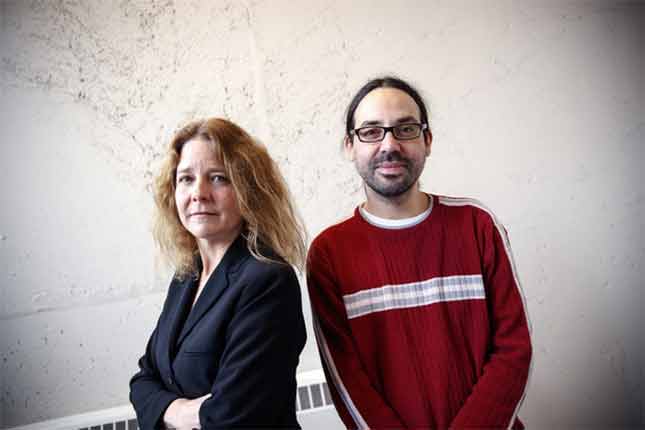Criminologist Anderson and colleagues study public opinions about the death penalty
- published: 2017/11/30
- contact: Melanie Kiper - College of Public Affairs and Community Service
- phone: 402.554.2133
- email: mkiper@unomaha.edu
- search keywords:
- death penalty
- criminology
- criminal justice
- public opinion
- research

Omaha – Amy Anderson, School of Criminology and Criminal Justice, and her colleagues, have been conducting research to find what is driving support and opposition to the death penalty. They found that age, race, politics, and religion influence opinions about the death penalty, but that these may not have the effect you expect.
Here are some of the findings of the research:
- Support for a death sentence peaks at age 50 or 55, then begins to trend downward.
- Younger people are less likely to support the death penalty.
- Perceptions of the violent crime rate, but not the actual crime rates themselves, are one of the biggest predictors of death penalty support.
- Catholics are less likely and Christian fundamentalists are more likely to support capital punishment.
- Males, Caucasians, Republicans and people who identify as conservatives are more likely to support capital punishment.
Anderson’s colleagues are Philip Schwadel, UNL Department of Sociology, and Robert Lytle, University of Arkansas Little Rock Department of Criminal Justice. They used data from four decades of the General Social Survey.
The authors believe public opinion about the death penalty is important to understand because it influences lawmakers when making policy, and even judges, when they interpret existing policy.
Here is just some of the media coverage of Anderson, Schwadel, and Lytle's research.
From the Lincoln Journal Star, Nov. 25, “Study shows how age matters when it comes to death penalty support.”
From the Nebraska Radio Network, Nov. 28:, “Age, religion, crime rate all impact attitudes toward the death penalty.” This article was reprinted in the Norfolk Daily News, Nov. 28.
On the UNL website, Nov. 17: “Nebraska research drills into demographic drivers of death-penalty support.”